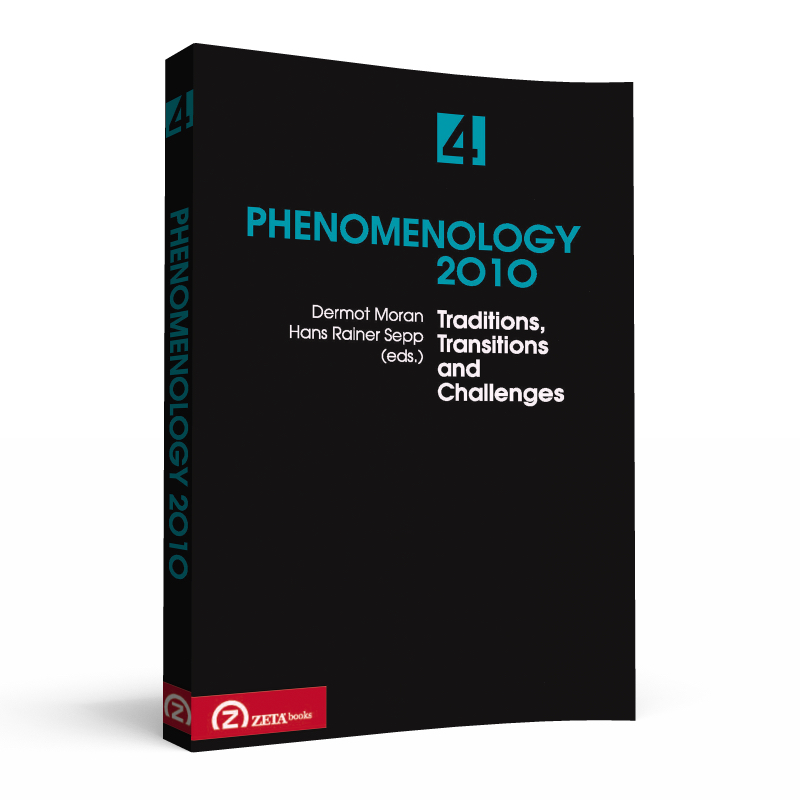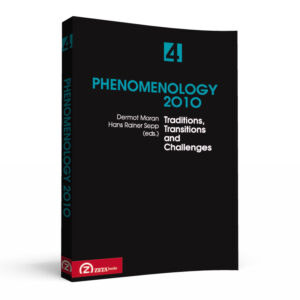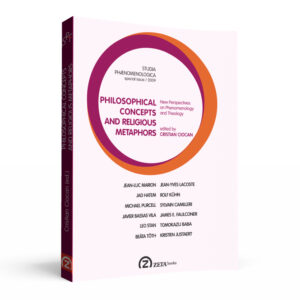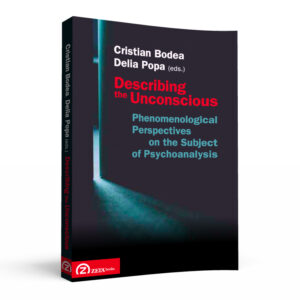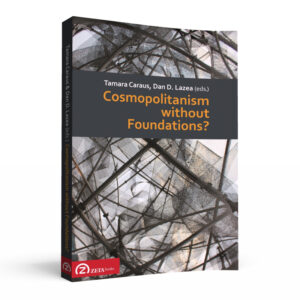The first part of this collection presents articles about central themes of European phenomenology – developed by positions from Husserl, Scheler, Heidegger, Fink, Stein, Merleau-Ponty, Ricœur, Beauvoir, Derrida, Henry, and Patočka –, while the second part first of all deals with phenomenological problems, specifically with a phenomenology of borderline situations like experiences of pain and insanity, but also with so “normal” phenomena like the acoustic volume of sound, further with topics of painting and photography, and with a philosophic-mathematical question in the end. On the whole, this collection provides evidence for a main tendency in contemporary phenomenology, as it is the phenomenological research on structures of the living human body including such problems like birth, love, and pain. At the same time, the articles are documents manifesting a phenomenological crossing over borders: they force a confrontation between different phenomenological positions and engage with other philosophies on the basis of phenomenological points of view, and they apply phenomenological analyses to other disciplines such as psychopathology and aesthetics. Finally, the border itself becomes a topic: in the shape of the ultimate of the absolutely infinite in the closing article of this book.
- Kristina Montagová (Prague, Czech Republic), Erleben ohne Erblicken. Die vielfältigen Gestalten des Urbewussten bei Husserl
- Nicholas Smith (Stockholm, Sweden), Self-Alteration and Temporality: The Radicalized and Universal Reductions in Husserl’s Late Thinking (au-delà de Derrida)
- Peter A. Varga (Budapest, Hungary), Phenomenology between Ego-Split and Infinite Regress: The Debates of Transcendental Reflection around 1930
- Susan Gottlöber (Dresden, Germany / Maynooth, Ireland), Krieg als katharsis? Die Phänomenanalyse Schelers im Spiegel der weilschen Ilias-Interpretation
- Mette Lebech (Maynooth, Ireland), Beginning to read Stein’s Finite and Eternal Being
- Marcus Knaup (Freiburg, Germany), „Personalität“ und „Leiblichkeit“ als Voraussetzung für zugelassenes Anderssein. Nachdenken in den Spuren Edith Steins
- Susanna Lindberg (Tampere, Finland), Schelling’s Organism and Merleau-Ponty’s Flesh
- Tatiana Shchyttsova (Vilnius/Minsk), Gebürtigkeit – ein zweideutiges Existenzial. Zur Aporetik der Heideggerschen Daseinsanalytik
- Inga Römer (Wuppertal, Germany), Vorlaufende Entschlossenheit oder Schuld gegenüber der Vergangenheit? Überlegungen zu Heidegger und Ricœur
- Tania Staehler (Dublin, Ireland), Heidegger, Derrida, the Question and the Call
- Ruud Welten (Tilburg, Netherlands), L’âme cartésienne de la phénoménologie
- Ivan Chvatík (Prague, Czech Republic), Rethinking Christianity as a Suitable Religion for Postmodern World: An Attempt to Reconstruct the Most “Heretical” Idea of Jan Patočka
- Alice Koubová (Prague, Czech Republic), The Double Structure of Experience
- Victor Molchanov (Moscow, Russia), On the Space of Internal Experience
- Stefan Volke (Germany), Das Erlebnis des Schallvolumens
- Petr Kouba (Prague, Czech Republic), Temporality of Madness
- René Kaufmann (Dresden, Germany), „Body in pain“ Ein phänomenologischer Blick auf Aporien der philosophischen Leidbetrachtung
- Susan Gottlöber (Dresden, Germany / Maynooth, Ireland), Krieg als katharsis? Die Phänomenanalyse Schelers im Spiegel der weilschen Ilias-Interpretation
- Gerard Visser (Leiden, Netherlands), Das Ereignis der papiers collés im Werk Braques
- Hans Rainer Sepp (Prague, Czech Republic), Possible Necessities. A Phenomenological Analysis of Yves Tanguy’s The Palace of the Windowed Rocks
- Iris Laner (Basel, Switzerland), So wird anders gewesen sein. Zur Zeitlichkeit des photographischen Bildes
- László Tengelyi (Wuppertal, Germany), On Absolute Infinity in Cantor
ISBN: 978–973–1997–71–1 (paperback)
ISBN: 978–973–1997–72–8 (ebook)

